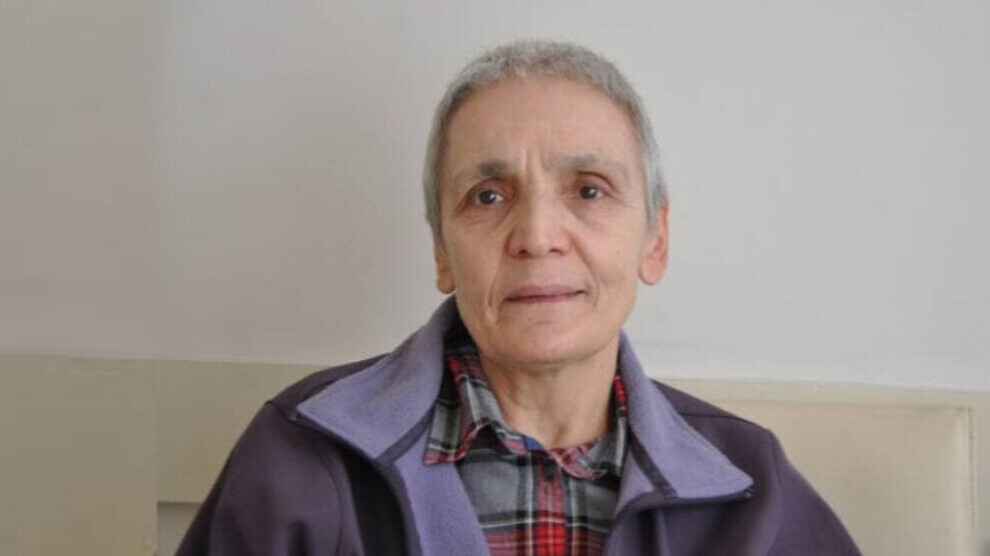Kurdish politician Aysel Doğan dies in Germany after many years of cancer treatment
Kurdish politician Aysel Doğan died in a hospital in Germany after many years of cancer treatment.
Kurdish politician Aysel Doğan died in a hospital in Germany after many years of cancer treatment.

Aysel Doğan died in a hospital in Germany after years of cancer treatment. The Kurdish politician was a member of the peace group that travelled to Turkey from Europe in 1999 following the call of Abdullah Öcalan. The entire delegation was arrested in Turkey. Aysel Doğan spent 17 years of her life in prison.
Aysel Doğan was born in Dersim in 1953 and in her youth was committed to the constitutional recognition of Kurdish identity. After her studies, she worked as a teacher. At the time of the 1980 military coup, she was arrested and tortured on numerous occasions. She was detained for years without trial.
In 1991, she ran as an independent politician in Dersim for a seat in the Turkish Parliament. Although she received the most votes in the region, her career as an MP was thwarted by the electoral law. Because of her activities in Dersim, she was targeted by JITEM and received death threats. She then left Turkey and went to Germany, where she continued to be politically involved in the Kurdish liberation struggle.
In 1999, Aysel Doğan travelled from Europe to Turkey as a member of the peace group as part of the process initiated by Abdullah Öcalan on the prison island of Imrali for the start of peace negotiations. Upon entering the country, she was arrested and sentenced to ten years’ imprisonment. After her release in 2009, she returned to Dersim and founded an Alevi academy there. The association dealt with questions of faith and the Alevi culture and undertook a variety of activities to preserve the ecosystem and the holy places in Dersim.
In 2011, Aysel Doğan was arrested again as part of the "KCK operations" and sentenced to 18 years in prison. In 2012, she took part in a mass hunger strike against the isolation of Abdullah Öcalan. Her case was reopened in 2014 and she was released from Amed prison in 2015 due to her progressing cancer. She went back to Dersim and continued her work there until she left for Germany where she was receiving treatment for cancer.